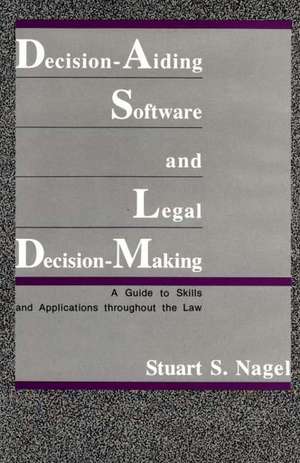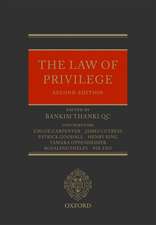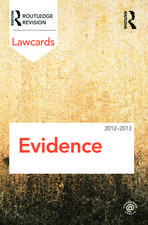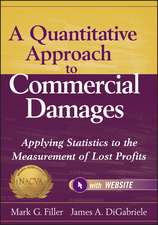Decision-Aiding Software and Legal Decision-Making: A Guide to Skills and Applications Throughout the Law
Autor Stuart S. Nagelen Limba Engleză Hardback – 31 aug 1989
The use of microcomputers as decision aids in law practice is increasing rapidly. Nagel here shows how developments in software over the last few years are making microcomputers practically indispensable to lawyers as decision aids. This is in contrast to his earlier book on "Microcomputers as Decision Aids in Law Practice." It dealt speculatively with ways in which decision-aiding software could be used by lawyers for judicial prediction, litigation strategy, allocating scarce resources, and negotiation-mediation.
The book is divided into three parts covering general developments, specific lawyer skills, and application to all fields of law. The first part previews various uses of decision-aiding software by practicing lawyers, including a general discussion of the potential and actual benefits of such software. How decision-aiding software enhances specific lawyer skills comprises the second and largest part of the work. Among the topics discussed are computer-aided counseling, computer-aided mediation, legal policy evaluation and computer-aided advocacy, law prediction, and legal administration. In the third part, Nagel assesses applications of decision-aiding software to all fields of law, with an emphasis on contracts, property, torts, family law, criminal law, constitutional law, economic regulation, international law, civil procedure, and criminal procedure. In a provocative concluding chapter, he deals with the thorny issues of individual ethics and professional responsibility in the context of microcomputers. Because decision-aiding software encourages decision makers to be much more explicit about their goals than they otherwise would be, its use raises questions as to whose goals should be pursued and to what degree. This is a nuts-and-bolts guidebook that will be a valuable tool for practicing attorneys with some knowledge of microcomputers and is recommended reading for legal scholars and law students.
Preț: 438.51 lei
Preț vechi: 604.61 lei
-27% Nou
83.94€ • 91.20$ • 70.55£
Carte tipărită la comandă
Livrare economică 21 aprilie-05 mai
Specificații
ISBN-10: 089930382X
Pagini: 269
Dimensiuni: 156 x 234 x 16 mm
Greutate: 0.56 kg
Ediția:New.
Editura: Praeger
Descriere
The book is divided into three parts covering general developments, specific lawyer skills, and application to all fields of law. The first part previews various uses of decision-aiding software by practicing lawyers, including a general discussion of the potential and actual benefits of such software. How decision-aiding software enhances specific lawyer skills comprises the second and largest part of the work. Among the topics discussed are computer-aided counseling, computer-aided mediation, legal policy evaluation and computer-aided advocacy, law prediction, and legal administration. In the third part, Nagel assesses applications of decision-aiding software to all fields of law, with an emphasis on contracts, property, torts, family law, criminal law, constitutional law, economic regulation, international law, civil procedure, and criminal procedure. In a provocative concluding chapter, he deals with the thorny issues of individual ethics and professional responsibility in the context of microcomputers. Because decision-aiding software encourages decision makers to be much more explicit about their goals than they otherwise would be, its use raises questions as to whose goals should be pursued and to what degree. This is a nuts-and-bolts guidebook that will be a valuable tool for practicing attorneys with some knowledge of microcomputers and is recommended reading for legal scholars and law students.












